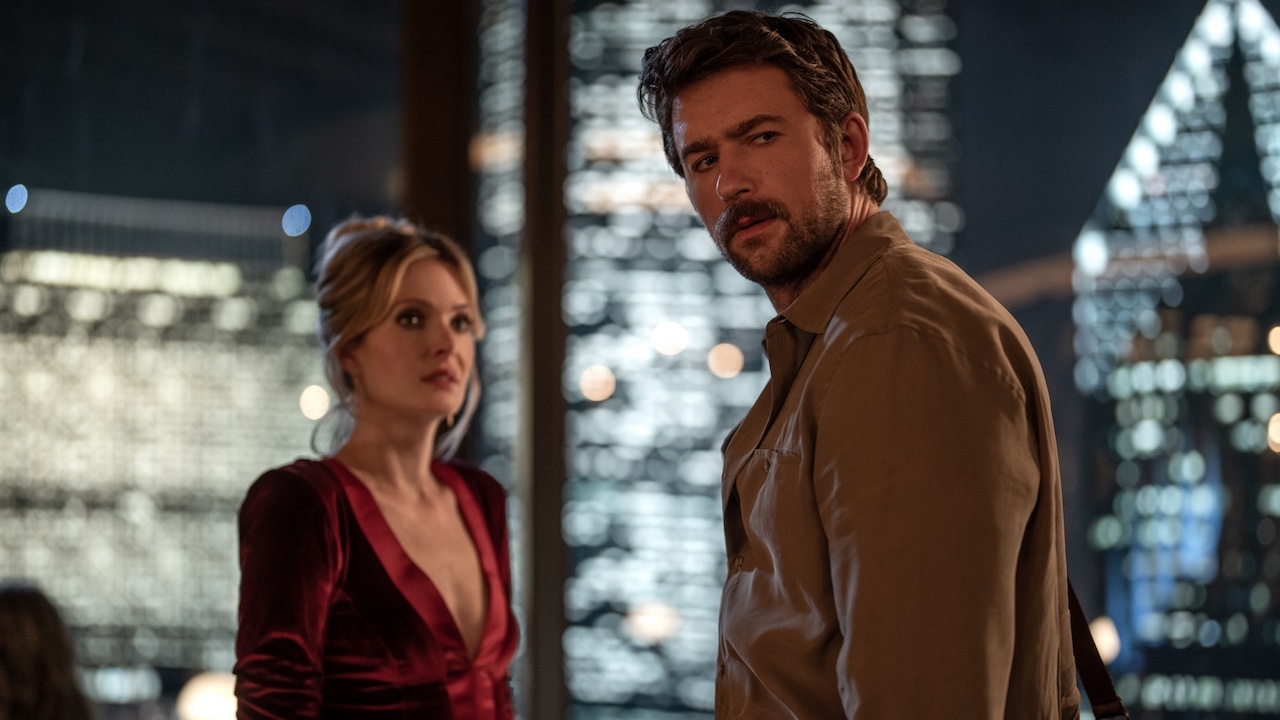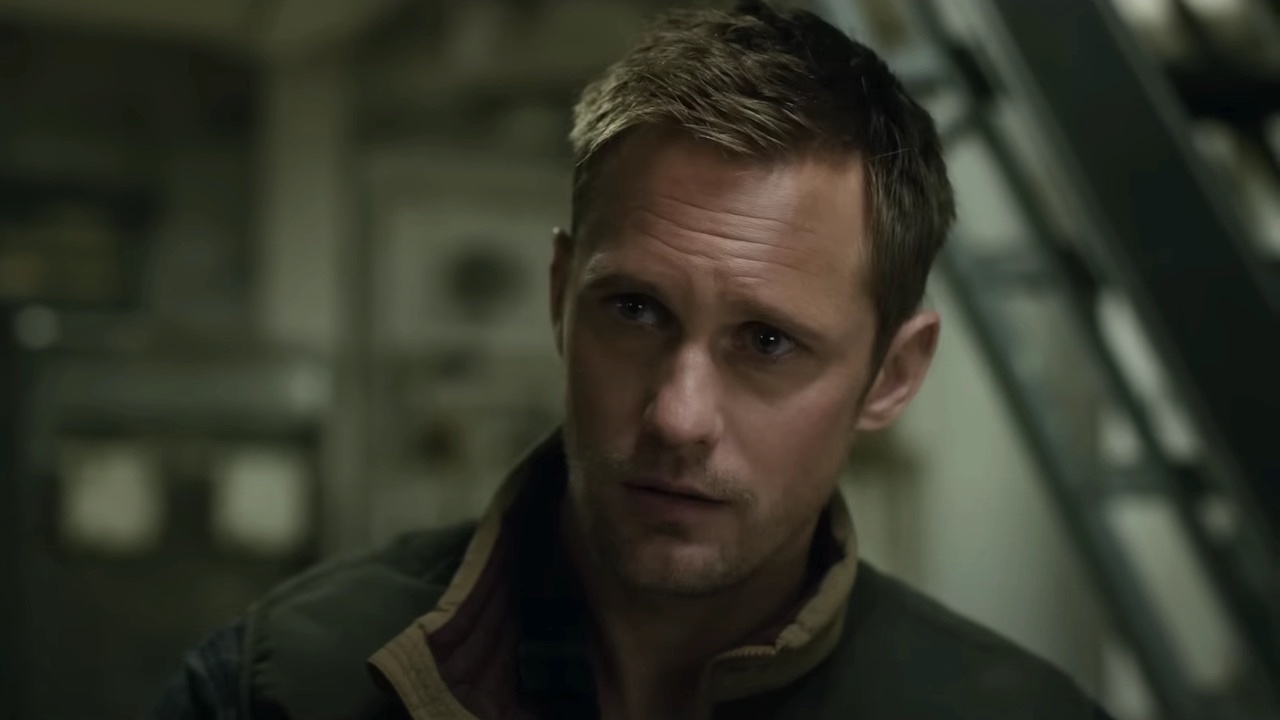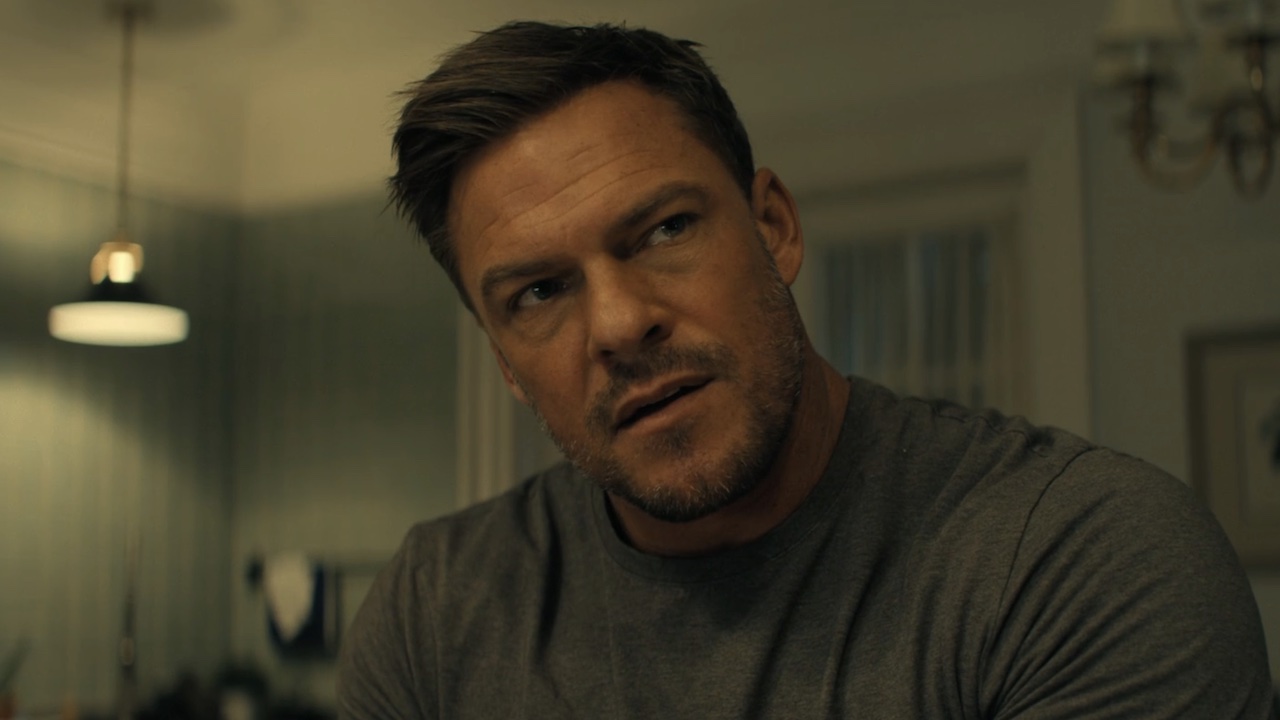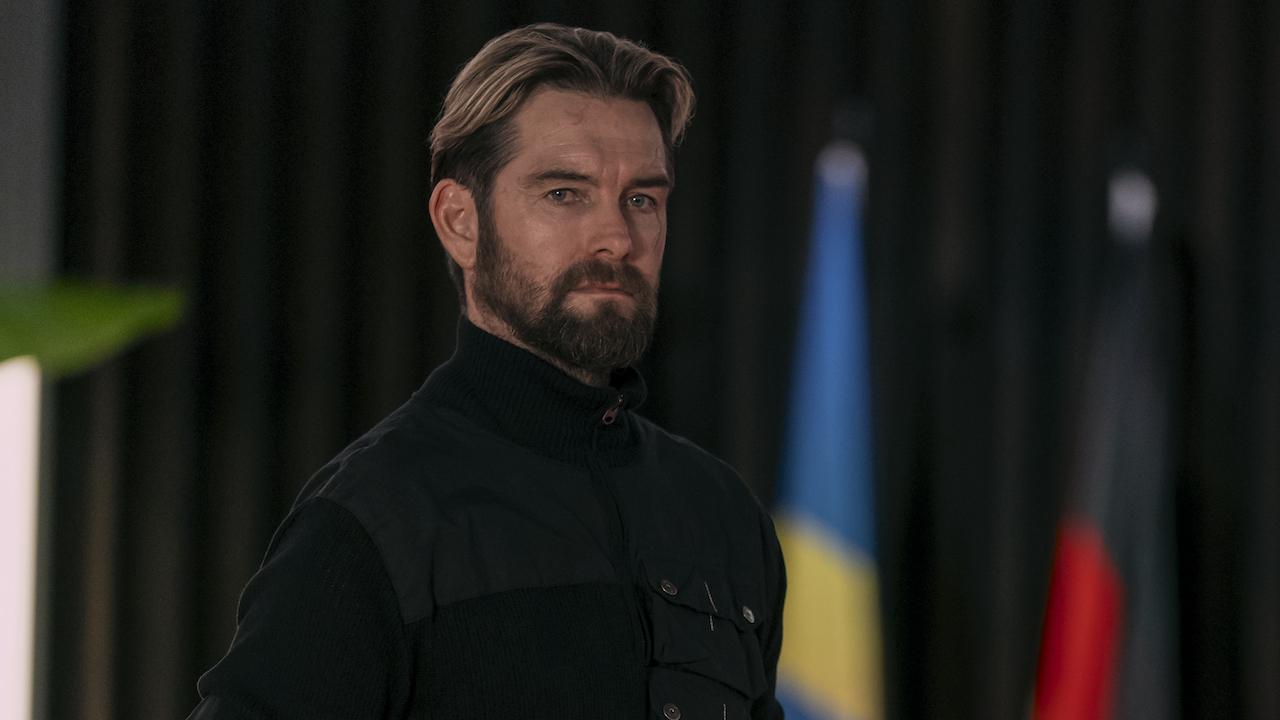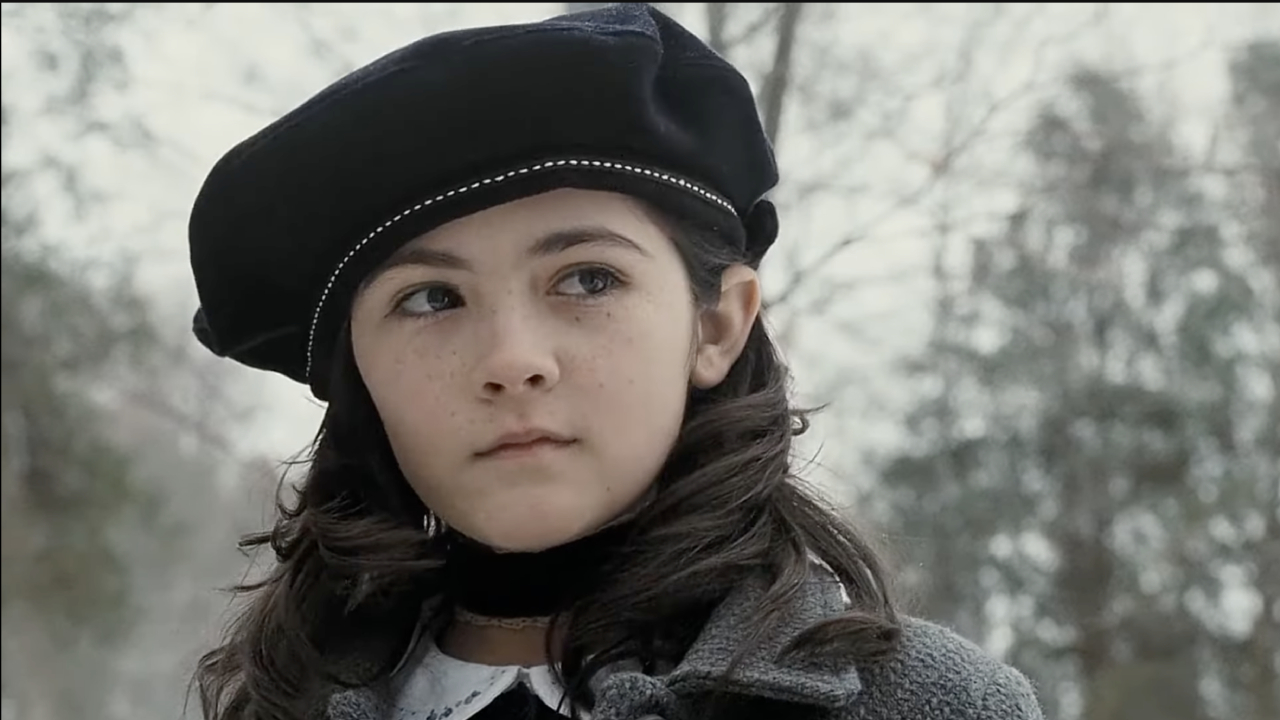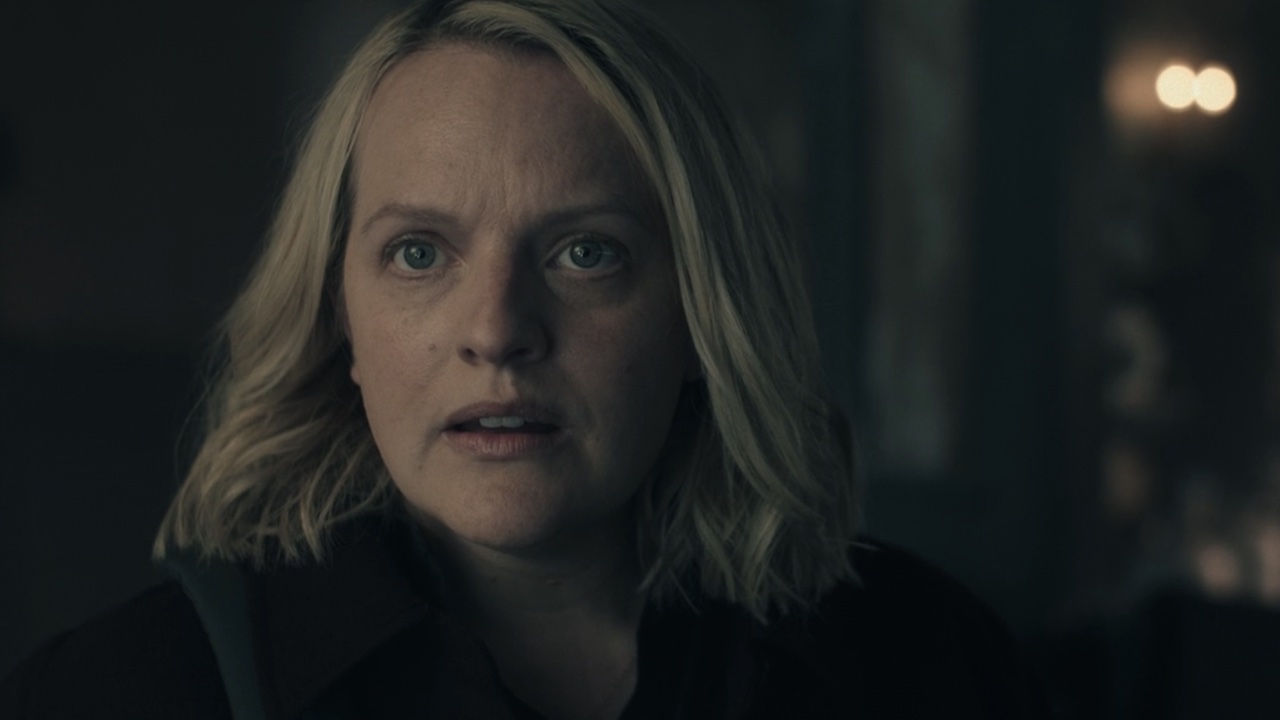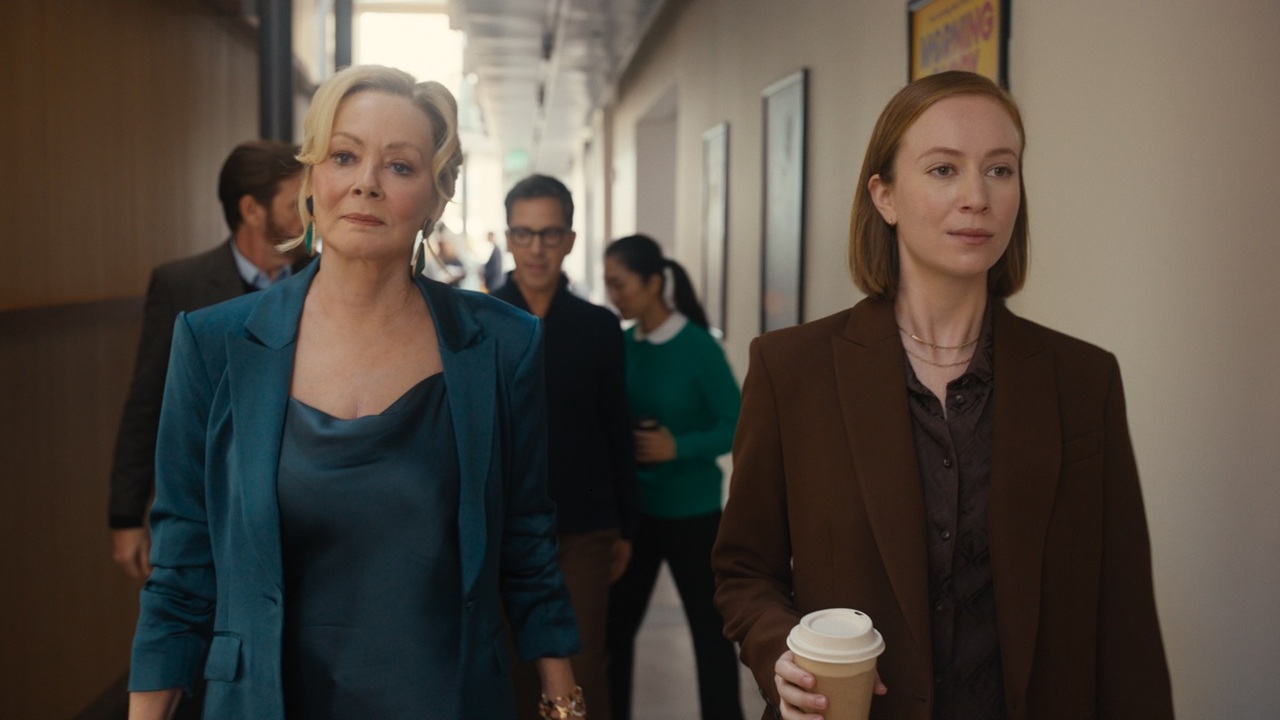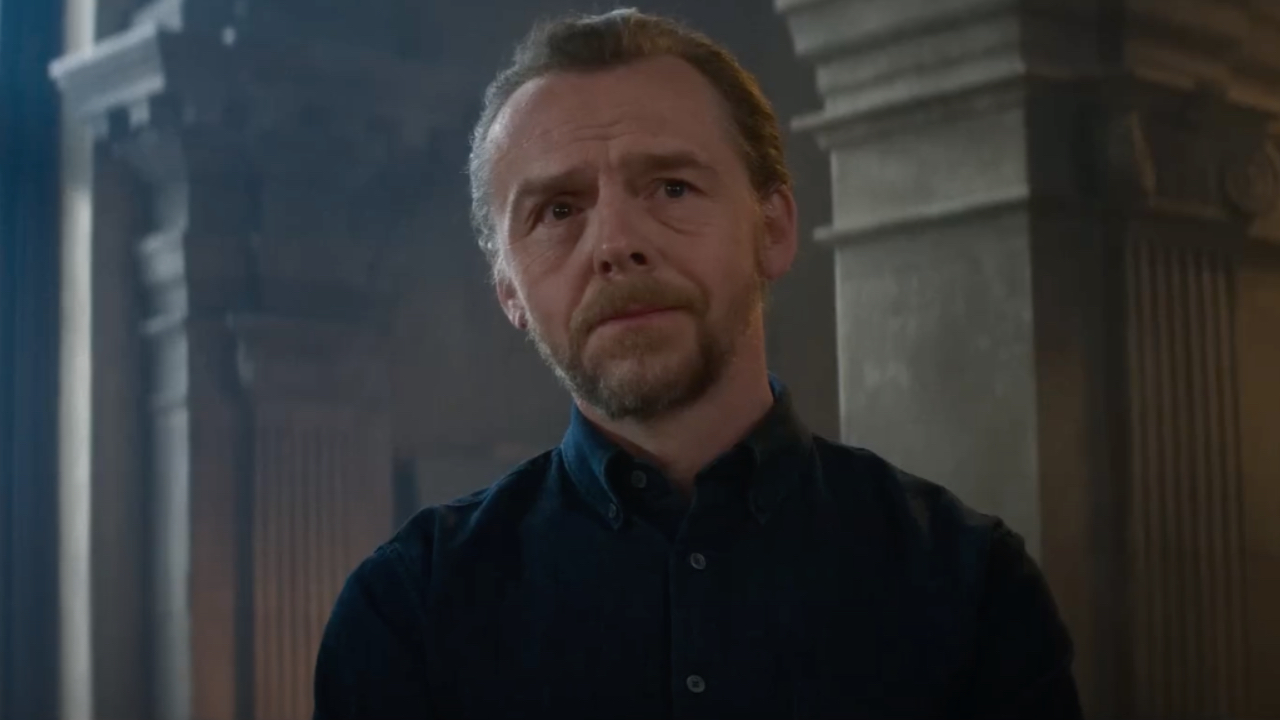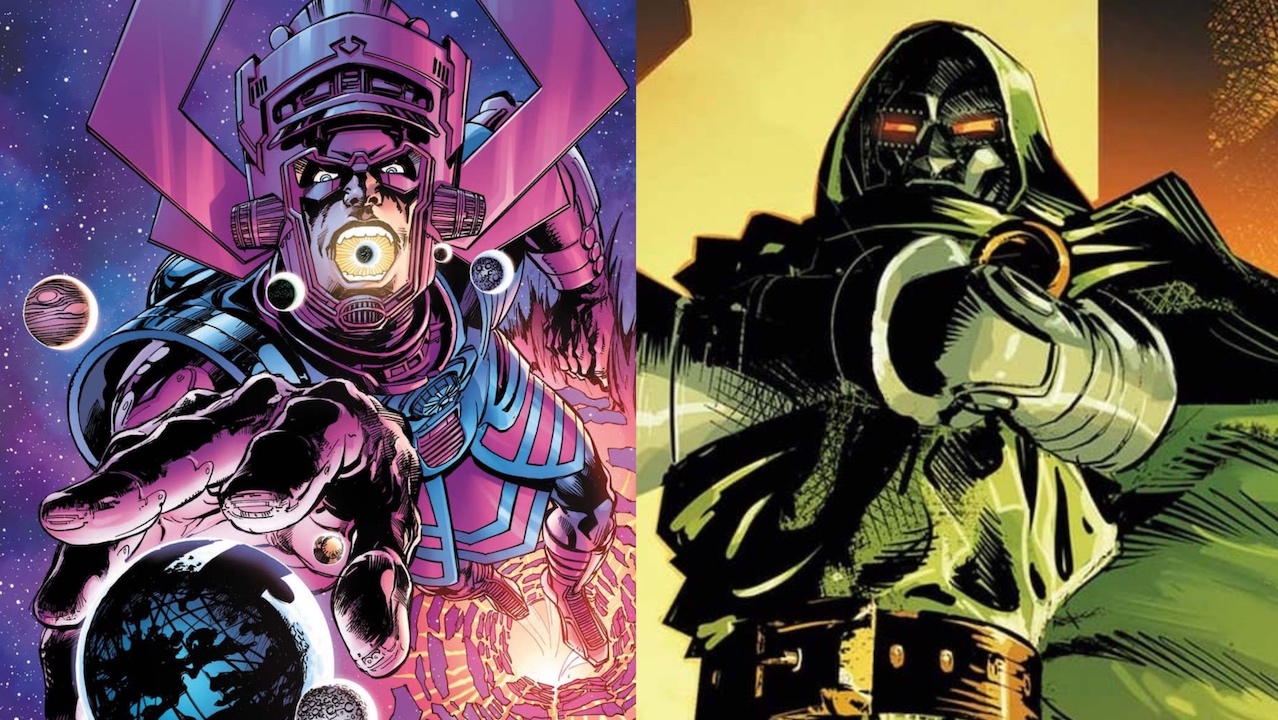Adapting Stephen King's Trucks: 1986's Maximum Overdrive Has Stephen King Take The Wheel
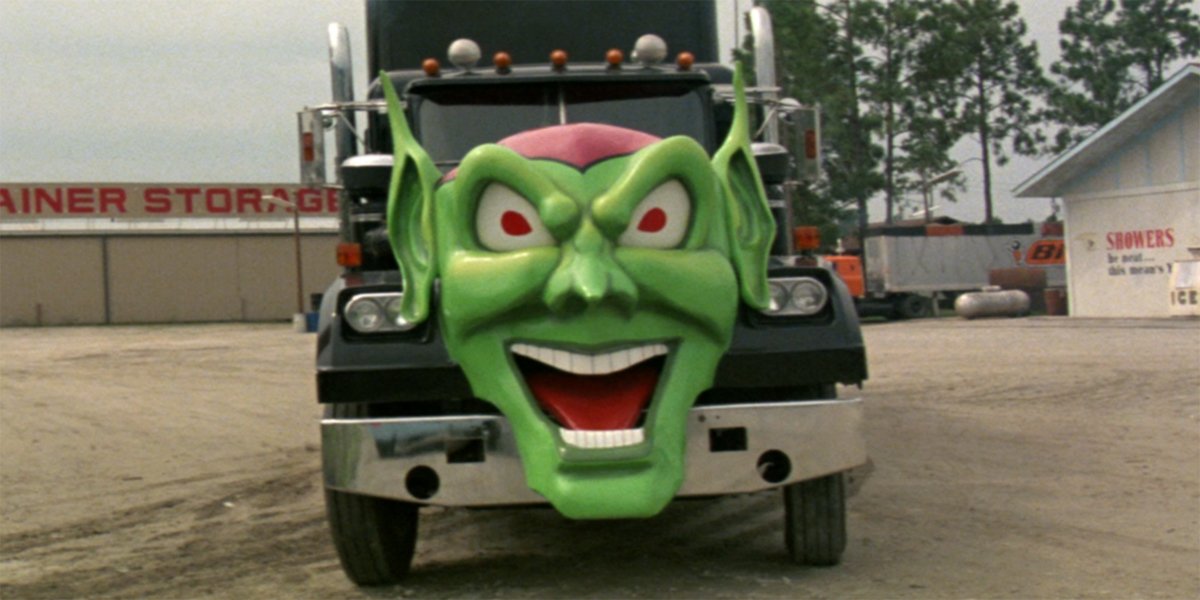
By the mid-1980s, Stephen King had garnered the experiences of both a hot and cold relationship with Hollywood. Thirteen adaptations were produced in the span of a decade, and King’s opinions of them varied greatly – from his lauding of Lewis Teague’s Cujo, to his infamous issues with Stanley Kubrick’s The Shining. He had written screenplays that had been produced (see: Creepshow and Silver Bullet), but he also recognized that the true power on any production lies with the director, and it was this understanding that paved the road to 1986’s Maximum Overdrive.
The film is based on the short story “Trucks,” most famously featured in the 1978 collection Night Shift, and the idea of Stephen King directing it actually started long before Maximum Overdrive was a standalone idea. The rights were initially purchased by producer Milton Subostsky, and Subostsky's initial plan was to include it as part of an anthology film titled The Machines that would also adapt King’s “The Lawnmower Man” and “The Mangler.” According to Ian Nathan’s Stephen King At The Movies, the producer offered the author the chance to make The Machines as his directorial debut, but at the time King had concerns about collaboration, working with a limited budget, and the potential for failure.
It was about a year later that The Dead Zone/Firestarter/Cat's Eye producer Dino De Laurentiis purchased the rights to the story (along with five others) from Subotsky, and he too pushed for Stephen King to get extra involved with an adaptation. King again balked, but De Laurentiis urged him to just think about it – and he did. By the summer of 1985, the author was on a set in the sweltering heat of Wilmington, North Carolina helming his first (and ultimately only) film, shooting on sound stages neighboring where David Lynch was filming Blue Velvet.
Maximum Overdrive has a complicated history – one that involves being a critical flop, a financial failure, and finding a cult audience – but that kind of history only serves to spice things up in when reflecting on the production, making this week's Adapting Stephen King a fun ride.
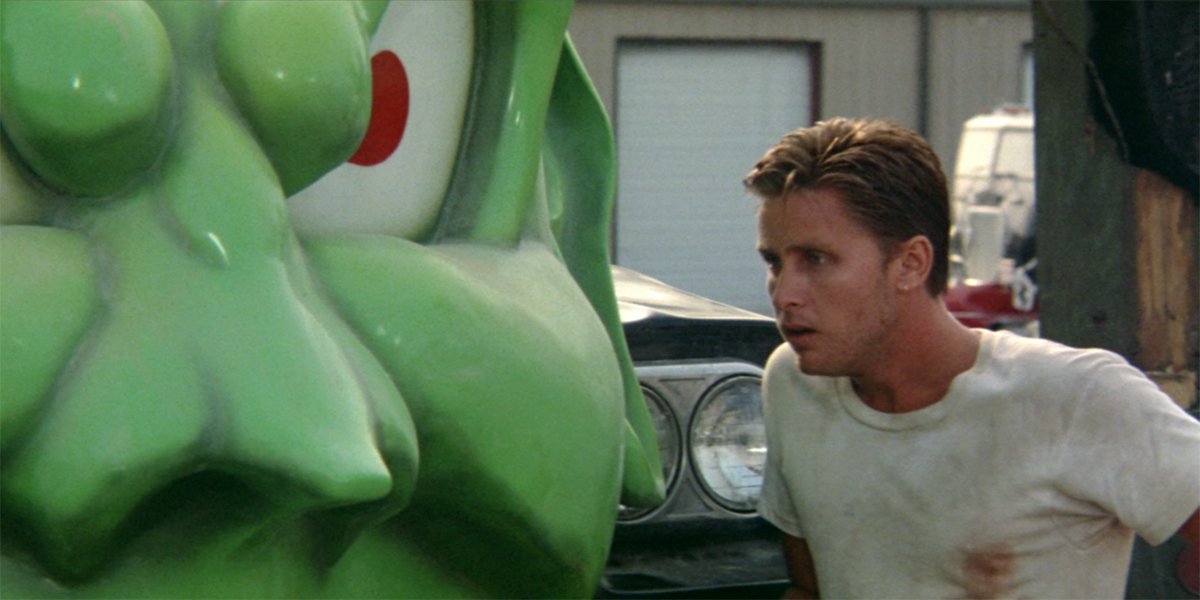
What Stephen King's “Trucks” Is About
What would happen if machines around the globe went full Peter Finch in Network and just decided that they weren’t going to take it anymore? What if they got tired of being our unappreciated slaves, and decided it was time for a role reversal? That’s a general science-fiction concept that is potent and easily relatable in our computer dependent world of 2021, but it was something that Stephen King was thinking about all the way back in the 1970s – which was when “Trucks” was first published in Cavalier magazine.
The story is not only an examination of how instrumental technology has become in modern life (what better way to understand something’s necessity than by recognizing what would happen if it turned on you?), but also an experiment in a special kind of horror. As Stephen King related in an interview with Douglas E. Winter for Stephen King: The Art Of Darkness, there is a particular terror that is evoked when neither the characters nor the audience actually understand the root of something scary, and can only be frightened by it:
Because nobody really knows why it happened. That is sometimes the worst part of horror fiction: the need to know why something happened. It' a holdover from the rational fifties: ‘We have got to have an explanation, Doc.’ But maybe they're mad. Maybe they're mad, that's all.
Told from the perspective of an unnamed narrator, “Trucks” begins with a group of six strangers holed up at a freeway rest stop desperately trying to understand why trucks and busses have seemingly come alive and started murdering every human they can find. Trapped, they begin considering necessities for survival, but circumstances only become more desperate when an attempt to sneak around to the outside restrooms and get water from the toilet tanks nearly results in the protagonist and a young man being killed.
CINEMABLEND NEWSLETTER
Your Daily Blend of Entertainment News
Eventually the trucks begin communicating in Morse code via honks, demanding that a volunteer come outside and man the fuel pumps – and while this gets a rebellious response at first, involving Molotov cocktails, the tone changes when a bulldozer successfully rams the building and kills two members of the group. Eventually the narrator realizes that they have no choice, and he goes outside to start refueling trucks. The survivors pump in shifts, and a tanker arrives to keep the flow going when the station’s supply runs out. As this process continues, the narrator thinks about similar scenes playing out across the world… but also assembly line workers in auto manufacturing plants driven to build new vehicles, and all of nature being paved over. A couple of planes fly overhead, and he ponders whether or not there is anybody aboard.
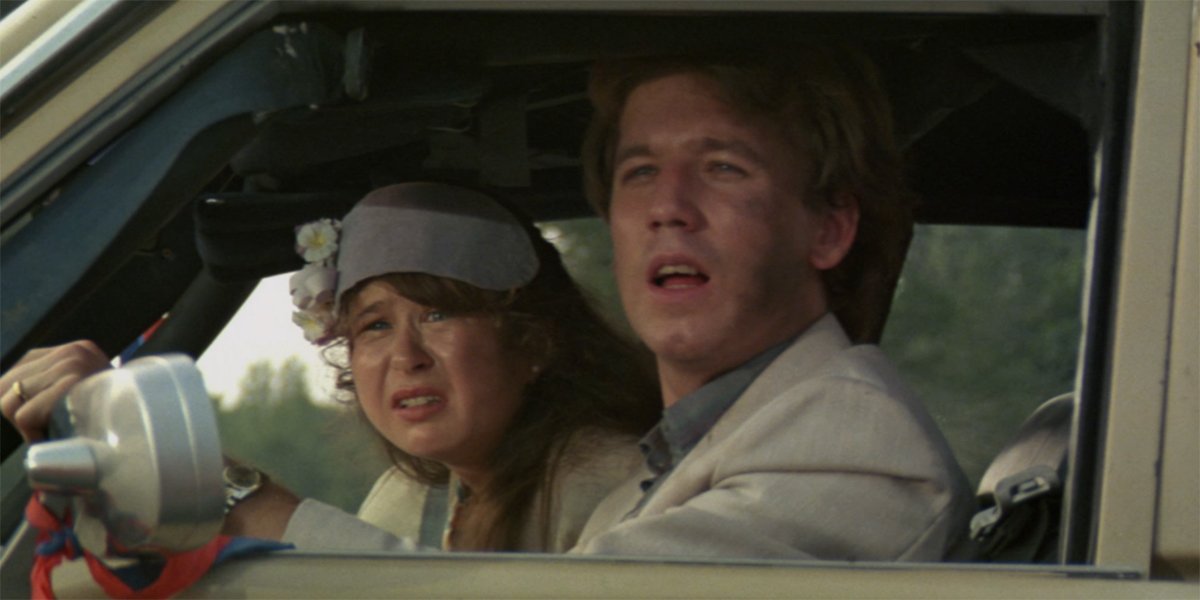
How Maximum Overdrive Differs From “Trucks”
Among the short stories that Stephen King has written, “Trucks” is noted as a “personal favorite” of the author’s in multiple research resources that I use for this column – and thus it’s pretty easy to understand why it would be the one he would choose to adapt for his directorial debut. It’s very short, but it’s an effective, scary tale with a chilling ending. This in mind, it’s puzzling that Maximum Overdrive changes all but the core concept: humans trapped at a truck stop by sentient semis.
You know that terror of the unknown that "Trucks" evokes? It doesn’t take more than a second for the film to undercut it, as text on screen after the studio logos immediately announcing that the reason why machines are going crazy is because of a comet passing Earth and sprinkling the planet with powerful cosmic dust.
Secondly there’s the tone. “Trucks” is not a story of levity; it’s a no-frills horror story about the enslavement and end of humanity thanks to a technological uprising. To quote Stephen King in the infamous trailer for Maximum Overdrive, it is designed to “scare the hell out of you.” But the actual movie? Not so much.
Like with Children Of The Corn and Silver Bullet, adapting the short piece of fiction into a full length movie required the injection of a lot of original ideas – and that’s covered in the film by Stephen King actually showing the uprising of the machines, adding characters with significant personalities and relationships, and ultimately having the protagonists fight back against the trucks. Those kinds of alterations are self-explanatory, but what’s less explicable is the changes to the nature of the story in the name of making what King has described as a “moron movie.”
Despite the intimate involvement of the original author, Maximum Overdrive is definitely more “loosely based on the work of Stephen King” than a straight adaptation.
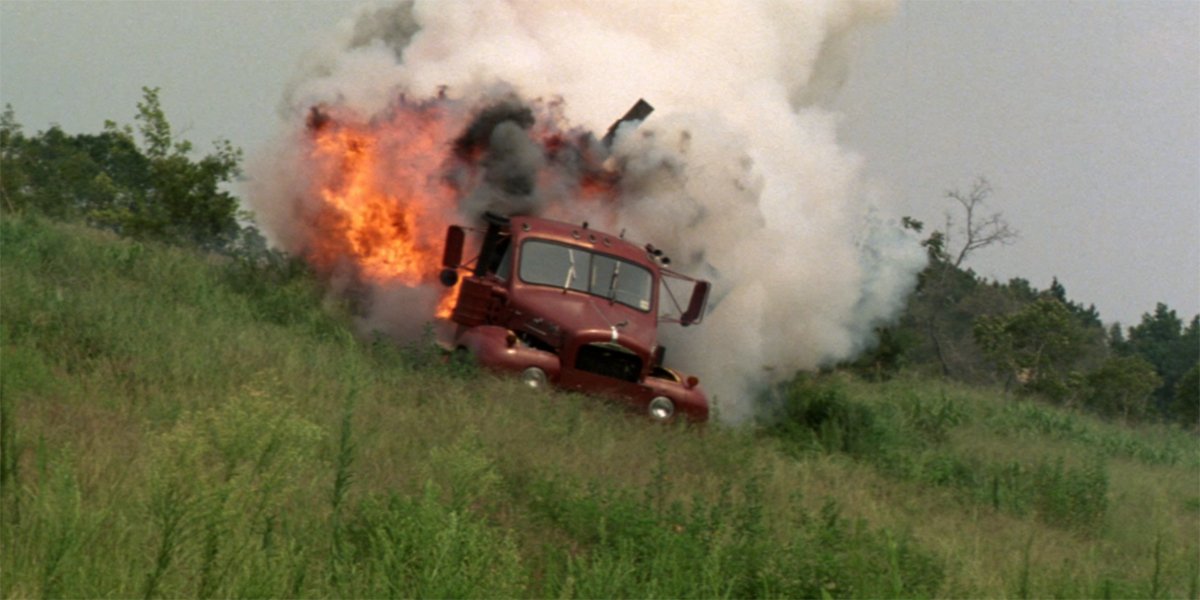
Is It Worthy Of The King?
While “Is it worthy of the King?” is a regular section in this column, in the case of Maximum Overdrive the context is obviously different. It’s not a matter of how a filmmaker’s vision compares to the one behind the original work, but instead it becomes a question if the film is up to the standards of what Constant Readers expect from Stephen King and everything of which he is capable.
That stated, I have to impale myself on the fence in judgment of the movie, because it’s one that causes the two halves of my brain to go to war. One always searches for the merits every time I watch, including the wonderful extreme tone and memorable set pieces, and the other can’t ignore just how ridiculously and inexcusably messy it is.
Accepting the tonal change from "Trucks," it’s a foolish exercise to dismiss Maximum Overdrive as a “bad horror movie” because that’s only an examination of half its vision; it fails to recognize how legitimately funny the film is (something that Stephen King telegraphs in the opening scene where he makes a cameo as a man textually declared an asshole by his bank’s ATM). The comedy doesn’t really come through the characters or the dialogue, but instead it’s more about the movie’s hyper self-awareness of its silly premise involving 16 wheelers in a stand-off against heavily armed occupants of a North Carolina truck stop. Appreciation also demands darker sensibilities, and the ability to laugh when a little leaguer gets annihilated by a steamroller – but that’s really something that every Constant Reader needs to be equipped with in order to fully engage with the author/filmmaker’s work. In King’s own words (from Kingdom of Fear: The World Of Stephen King),
A friend of mine said you know you're being scary when you can feel the malevolent grin begin to creep up your face – and he's right. Humor and horror are close together. Both come from the same aggressive impulse and in both cases we laugh or scream because we're happy it isn't us.
As though the ending of Carrie, the plot of Firestarter, and the presence of The Trashcan Man in The Stand didn’t demonstrate it clearly enough, Stephen King also further exposes his inner pyromaniac with Maximum Overdrive. From flipping tractor-trailers, to RPG-exploded semis, to the Dixie Boy Truck Stop going sky high, King clearly loved blowing shit up sitting behind the camera, and that joy comes across in every screening.
What’s ultimately pretty shocking about Maximum Overdrive is that, of all things, it’s the writing that lets the movie down. One can rattle off a variety of excuses for it – a few examples being the fact that Stephen King was juggling several projects at the time, the pressures of a directorial debut, and King’s growing substance abuse issues – but regardless there is just a lot about the film that feels haphazard and undercooked. The characters all have the author's familiar flavors, from the hunky short-order cook with a dark past (Emilio Estevez), to the corrupt and exploitative boss (Pat Hingle), to the smart and empathetic teen (Holter Graham), but they’re thinly drawn and the story never provides opportunity for the audience to form a deeper connection with them.
It further hurts to recognize that Maximum Overdrive is eternally frustrating in its utter lack of rules or consistency. If you’re making a movie where the trail of a comet makes all machines on Earth come alive, that’s something you have to commit to – but there are plenty of machines throughout the story that inexplicably perform without any issue, the most notable being the sedan driven by Connie (Yeardley Smith) and Curtis (John Short) in their introductory car chase, and the motorboat that allows the surviving heroes to escape to safety at the end. There is a line drawn between suspension of disbelief and bad writing, and Stephen King’s film is on the wrong side of it.
King made the unfortunate mistake of negotiating a summer release date for the film, agreeing to be heavily involved in the marketing and publicity in exchange, and it wound up being a box office failure. The movie did, however, find a cult following early in its existence thanks to it constantly playing on cable television, and watching it now it’s easy to understand why: dumb as it may be, it’s a lot of fun. Between its blaring AC/DC filled soundtrack and the Green Goblin-headed Happy Toyz truck, it has certainly left its stamp on pop culture, and while one could say it’s not fully functional as a movie, it’s a solid and memorable experiment with Stephen King as a director.
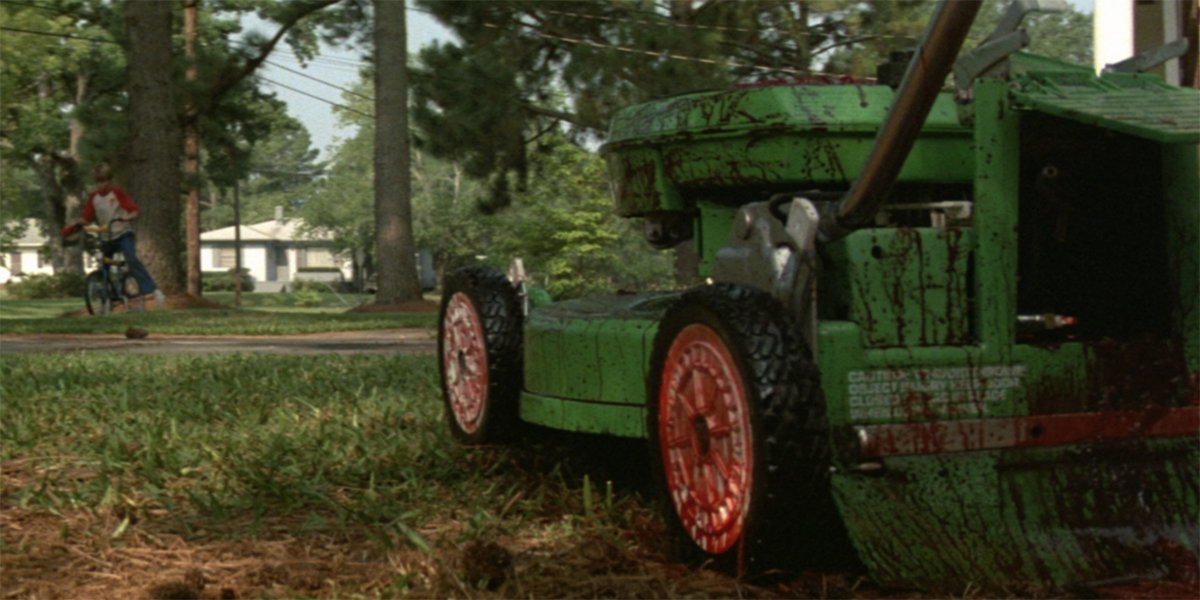
How To Watch Stephen King’s Maximum Overdrive
Maximum Overdrive is sadly not presently streaming on any subscription service, but the nice follow-up to that inconvenient circumstance is the fact that it’s available for rental or purchase from all major online retailers. You're also in luck if you’re like me and perpetually aiming to build the Ultimate Stephen King collection. Lionsgate released a Blu-ray edition of the film via their Vestron Video Collector's Series in 2018, and it’s really a nice set that includes two commentary tracks (sadly neither one includes King himself) and a number of exclusive interviews and featurettes.
Looking ahead, Adapting Stephen King will be taking a look at another classic next week, as it was less than a month after Maximum Overdrive hit theaters that Rob Reiner’s Stand By Me was first released – the film based on the novella “The Body” from the collection Different Seasons. You’ll be able to find it here on CinemaBlend next Wednesday, but for now click through the banners below to read all of the previous installments of this column.







Eric Eisenberg is the Assistant Managing Editor at CinemaBlend. After graduating Boston University and earning a bachelor’s degree in journalism, he took a part-time job as a staff writer for CinemaBlend, and after six months was offered the opportunity to move to Los Angeles and take on a newly created West Coast Editor position. Over a decade later, he's continuing to advance his interests and expertise. In addition to conducting filmmaker interviews and contributing to the news and feature content of the site, Eric also oversees the Movie Reviews section, writes the the weekend box office report (published Sundays), and is the site's resident Stephen King expert. He has two King-related columns.
